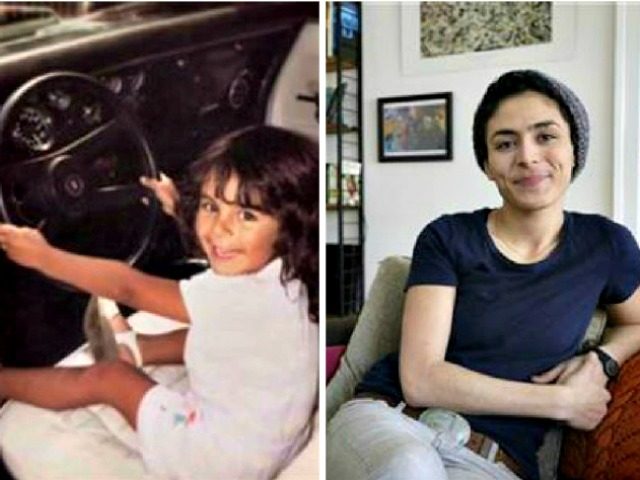The Obama State Department is announcing it is giving special support and notice to individuals born with an extremely rare disorder in which their sex cannot be easily determined at birth.
“On the occasion of Intersex Awareness Day, the United States stands in solidarity with intersex persons around the world,” the State Department announced Wednesday.
In its latest attempt to promote a nonbinary gender society, the Obama administration draws attention to “intersex” persons and stands with intersex activists who claim medical attempts to treat infants born with this condition are an infringement on their human rights.
“We recognize that intersex persons face violence, discrimination, stigma, harassment, and persecution on account of their sex characteristics, which do not fit binary notions of typical male or female bodies,” the State Department says, continuing:
The United States is a proud and founding member of the Equal Rights Coalition, a recently established Coalition of 31 governments that aims to “strengthen cooperation to advance the human rights of, and support inclusive development for all persons regardless of sexual orientation, gender identity or expression, and sex characteristics.” We hope this Coalition will work to share best practices and to jointly address challenges in support of the human rights of intersex persons.
Through the Global Equality Fund, the United States, together with the Fund’s 25 government, foundation, and business partners, are supporting new efforts of the intersex community to mobilize and organize, with the goals of increasing awareness of and support for intersex persons and their human rights. The Fund was launched in 2011 to support civil society in their efforts to advance human rights and uphold dignity for all.
Dr. Michelle Cretella, president of the American College of Pediatricians, writes about this rare medical condition, known as a disorder of sex development:
Human sexuality is binary by design with the purpose being the reproduction of our species. This principle is self-evident. Barring one of the rare disorders of sex development (DSD), no infant is “assigned” a sex or a gender at birth; rather birth sex declares itself anatomically in utero and is clearly evident and acknowledged at birth.
The exceedingly rare DSDs, including but not limited to androgen insensitivity syndrome and congenital adrenal hyperplasia, are all medically identifiable deviations from the human binary sexual norm. Unlike individuals with a normal genotype and hormonal axis who identify as “transgender,” those with DSD have an innate biological condition. Sex assignment in individuals with DSDs is complex and dependent on a variety of genetic, hormonal, and physical factors. Nevertheless, the 2006 consensus statement of the Intersex Society of North America did not endorse DSD as a third sex.
The American Psychological Association (APA) defines “intersex”:
A variety of conditions that lead to atypical development of physical sex characteristics are collectively referred to as intersex conditions. These conditions can involve abnormalities of the external genitals, internal reproductive organs, sex chromosomes or sex-related hormones.
APA goes on to discuss the process that takes place when a baby is diagnosed with DSD:
When a baby is born with ambiguous genitals, doctors perform examinations and laboratory tests to determine exactly what condition the baby has. Determining the type of intersex condition is important, because some intersex conditions that cause ambiguous genitals (for example, certain types of congenital adrenal hyperplasia) can be associated with medical problems that may require urgent medical or surgical treatment. Because we expect everyone to be identifiably male or female, the parents and family members of babies born with ambiguous genitals are usually eager to learn what condition the child has, so that sex assignment can occur without delay.
However, intersex activists have joined with the radical LGBTQ agenda to condemn attempts to provide surgery to infants born with this rare disorder, categorizing such intervention as the imposition of a gender identity onto a child.
Activist Morgan Carpenter of “Visibly Intersex” writes in a blog post on the Intersex Awareness Day website about the stated concerns:
We hear that parents demand surgeries; that the choice is between surgery or the foster care system. We also hear that parents don’t know their child is visibly different until they are told. We hear that children with DSDs are not intersex. That they don’t identify as intersex. That intersex advocates don’t represent the interests of intersex children.
…
What really matters is that we are able to make connections with our peers, and that we can dismantle the systems that cause shame and stigma. We share much in common with LGBT communities; we are more likely to be same sex attracted or transgender than non-intersex people, but our distinct issues need specific attention. LGBTI has to work for all constituent populations. We also have much in common with people with disabilities, and with the children’s rights movement.
Nevertheless, APA notes, “Most persons born with intersex conditions are happy with their assigned sex, just as most persons born without intersex conditions are.”
The Intersex Society of North America says that “about 1 in 1500 to 1 in 2000 births” are intersex cases.

COMMENTS
Please let us know if you're having issues with commenting.